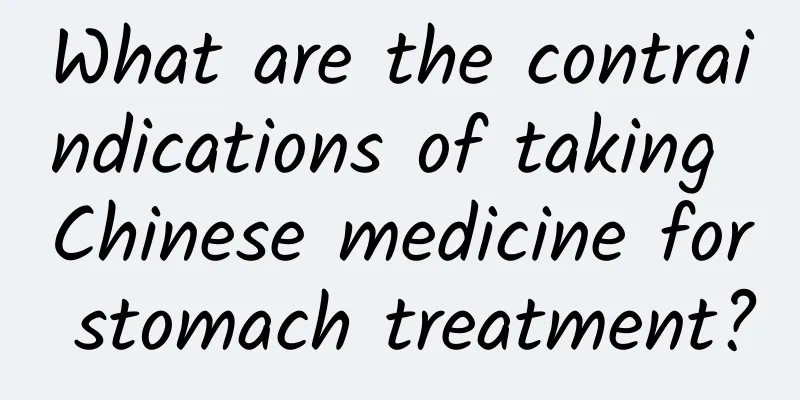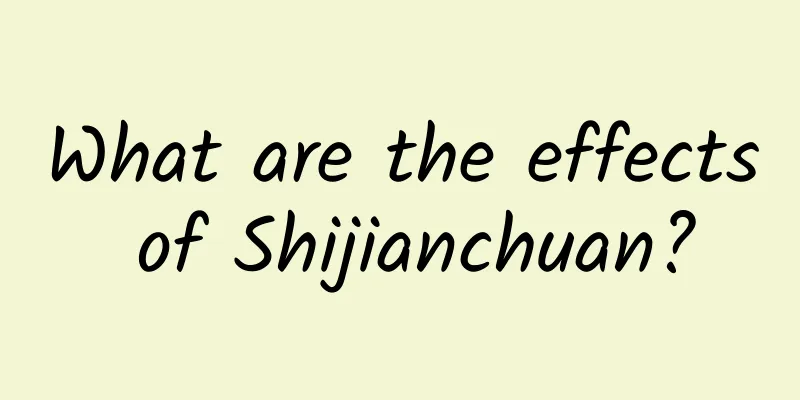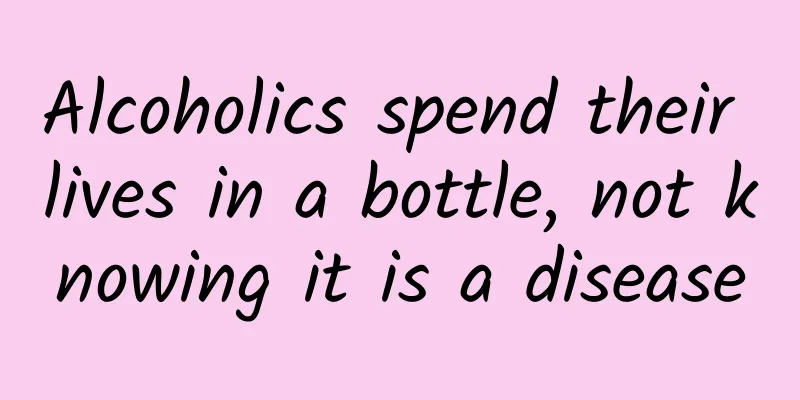What are the contraindications of taking Chinese medicine for stomach treatment?

|
Traditional Chinese medicine has its unique therapeutic effect in treating chronic diseases and is receiving more and more attention from people. Traditional Chinese medicine has good curative effect, but there are also some requirements when taking it. Traditional Chinese medicine can treat many diseases, mainly internal symptoms in the body. Although Western medicine can be used to treat diseases, it cannot provide long-term treatment and will not provide a thorough treatment for stomach problems. Let’s take a look at the taboos of treating stomach problems. You can also take a look at it below. Never drink strong tea when taking Chinese medicine, because tea contains tannic acid. If taken at the same time as Chinese medicine, it will affect the body's absorption of the active ingredients in the medicine and reduce its efficacy. Never eat radish while taking Chinese medicine, because radish has the effects of helping food and breaking up gas. Especially when taking tonic Chinese medicine such as ginseng, eating radish will not only reduce the effect of the tonic, but may also affect the tonic effect of the medicine. Patients with digestive tract diseases such as hepatitis and chronic gastroenteritis should never eat garlic while taking spleen-strengthening, stomach-warming and stomach-regulating medicines. Because garlic contains allicin, which can irritate the gastrointestinal mucosa, making the Chinese medicine taken unable to effectively play its therapeutic role. When taking Chinese herbal decoctions and pills, you should avoid eating raw, cold, or greasy foods. Because raw and cold foods not only stimulate the gastrointestinal tract, but also affect the gastrointestinal absorption of drugs. Greasy food is difficult to digest and absorb, and greasy food mixed with drugs can hinder the gastrointestinal absorption of the active ingredients of the drugs, thereby reducing the efficacy. In addition, patients with sores and skin diseases should avoid eating fish, shrimp, crab, mutton, pork and other foods. Patients with edema should avoid eating salt. Hepatitis patients should avoid spicy, pungent and greasy foods. How to drink Chinese medicine without bitterness 1. Master the temperature of the medicine liquid. When taking Chinese medicine, it is important to “warm up the cold and cool down the hot.” However, the use of bitter Chinese medicine is not limited to this. Relevant expert research has confirmed that the tongue is more sensitive to temperatures above 37°C. Therefore, the temperature of bitter Chinese medicine decoction should be controlled between 15°C and 37°C. 2. Understand the holding and swallowing areas. Studies have shown that people’s bitter taste receptors are mainly concentrated in the front half of the tongue, with the tip of the tongue being the most prominent. Therefore, after the medicine enters your mouth, it is best to quickly hold it at the root of your tongue and swallow it naturally. You can also use a spoon to directly deliver the medicine to the root of your tongue and swallow it naturally. 3. Master the speed of taking medicine. The longer the medicine stays in the mouth, the bitterer it tastes. Therefore, bitter Chinese medicine should be taken cleanly and quickly. 4. Use a straw. The taste buds on the tongue that sense bitterness are mainly located in the middle of the root of the tongue. Using a thick straw to drink medicine can minimize contact between the medicine and the tongue. 5. Rinse your mouth with cold water. Rinsing your mouth with cool water immediately after taking the medicine can also reduce the bitter taste. It is best to drink half a cup of warm water, which can warm the stomach and facilitate the absorption of the medicine. I believe everyone knows some of the taboos of taking Chinese medicine. In fact, when taking Chinese medicine, you must not drink strong tea, do not eat radishes, and do not eat raw, cold, or greasy food. Patients with digestive tract diseases such as hepatitis and chronic gastroenteritis should never eat garlic while taking spleen-strengthening, stomach-warming and stomach-regulating medicines. We also need to exercise more in our daily life so that we don’t need to take medicine, so we need to exercise more and rest more. |
<<: What are the taboos of drinking Chinese herbal medicine?
>>: What are the taboos of drinking Chinese herbal medicine?
Recommend
How serious is the "second-degree minor injury" of the Tangshan girl?
On June 21, the Hebei Provincial Public Security ...
The efficacy and function of insect bamboo shoots
Worm bamboo shoots are a kind of medicinal materi...
What are the beauty effects of white Poria cocos?
White Poria is an ingredient in many whitening pr...
Can't you gain weight by eating during menstruation? The more you sweat during exercise, the faster you lose weight? Don't believe these weight loss myths
Can drinking yogurt after a meal help digestion a...
Why does China launch so many satellites?
This article was reviewed by Liu Yong, space phys...
One picture to understand | A round trip of 30,000 kilometers, the latest revelation of the migration route of Beijing swifts
From Beijing to South Africa, the Beijing Swift t...
After waking up from a good night's sleep, my single eyelids became double. Am I sick?
Have you ever had this experience: your eyelids a...
The dwarf killer: the African pygmy falcon
When we talk about birds of prey, we will definit...
What are the medicinal values of Platycladus orientalis leaves?
Platycladus orientalis leaves are a blood-cooling...
Side effects of drinking dried mulberry leaves in water
When we were children, we would go to the suburbs...
The efficacy and function of yam
Men nowadays all hope to be young and strong, esp...
What is the core of what Liu Genghong said? Don’t wait until you get hurt to understand!
Mixed Knowledge Specially designed to cure confus...
What is the shelf life of snow lotus?
The growth environment of snow lotus is very spec...
How do frogs swallow food? They push with their eyeballs!
Editor’s Note: After the comprehensive science ex...









